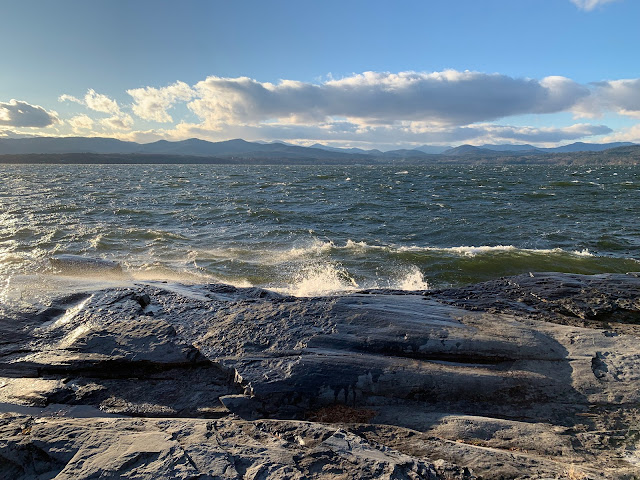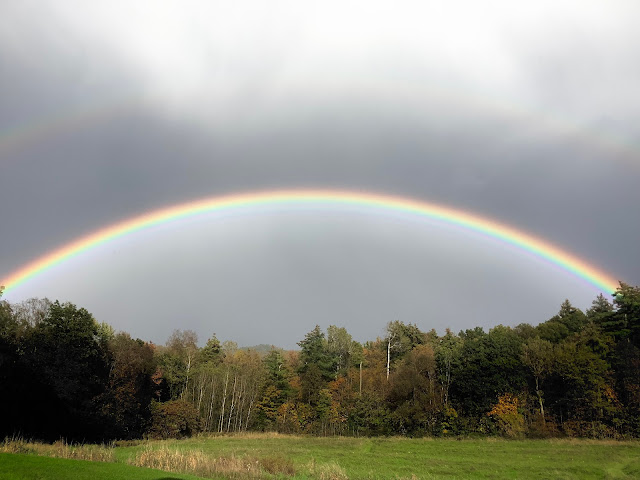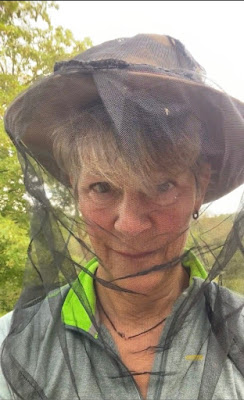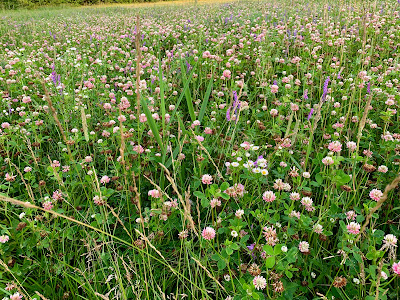The end of October came around again and November moved in.
I wanted to remember October 2016. And then I didn't. Days passed.
I wrote something back then.
Inexplicably I came across that again. So I am putting it up here...
 |
| Ken: Along the coast somewhere in Peru, with a pisco sour and a raffish look. |
The world is already a different one than Ken knew. I can’t really believe that time has passed since October 30th, 2016. The election happened. That was enormous. I went to Washington for a weekend and I want to tell him about it. I bought a dress he hasn’t seen. The leaves fell. It snowed, and the outdoors is different too.
I’ve been gathering and reading all his notebooks. They remind me of things I already know. He didn’t like me poking around when he was alive.
Ken was an explorer of the natural world. He was filled with curiosity. He was an observer. He wanted to understand the universe. He wanted to understand the behavior of an insect. He loved to quantify things. Ken was intense about every pursuit. And he was always modest about it. He never boasted.
***
We had adventures together. Many trips we took were more than just visits to places. They were explorations, they were adventures. We collaborated on planning them. Our last big trip to the Galapagos happened only a year ago. That one was his idea.
His interests all through throughout his life spanned an amazing range. I loved the fact that he was always up for something, something new. Sports he tried out were technical climbing, hang gliding (only briefly, thank God), rollerblading, scuba diving. Others he stuck with for years: fly fishing, cross-country skiing, snowshoeing, downhill skiing (even last winter), running, bicycling, hiking. He took long walks as recently as September.
***
I’ve been reading through all his notebooks. There are a lot of them. Most of them are half-filled. When he had something he wanted to make notes about he grabbed the nearest one. When he was in a shop that sold small notebooks he picked up more of them.
A lot of his thoughts he took notes on were about science. He wrote:
“For thirty years I worked as a physical chemist, but I don’t consider myself a scientist. I am a fan of science, an amateur in the original sense of “amateur” –– a lover of science. Much of the science I love is not chemistry. Had I been better at math, I might have been an astronomer or a physicist. Chemistry seemed to sit in the middle of all this. The child in me was delighted by the smells and colors: the marvel of electricity generated by chemical batteries, and the explosions and pyrotechnics.”
But he really was a scientist at heart. He wrote:
“It’s the sense of discovery, the rhythm of theories and ideas which enlarge, encompassing one another. A cycle of new insights, overturning earlier insights, only to encompass them.
On walks he would have a magnifying glass so he could examine a bug, a mushroom, animal scat, or a lichen.
And then there was art, and opera, music, and the theater––until his hearing got so bad even headphones didn’t help.
He was a scientist too when he was cooking, always trying the same dish in different ways, never satisfied merely to repeat it, even if I told him it was perfect just the way it was.
***
The notebooks are full of lists–shopping lists, to-do lists, lists of interests to follow up on, lists of phenomena he wanted to understand, lists of animal or plants he observed, lists of behaviors he wanted to improve upon. There are short essays on a huge range of topics, and there are travel notes. Some of his lists are interrupted by recipes.
***
More than ten years ago, after he was retired, he took a writing class in Cambridge taught by Mopsey Strange Kennedy (not a name to forget) and he began to write often, mostly about his early life. After that he took a poetry class. Both these classes helped him look back on his life, especially his early life. There was a reason for that.
As some of you may know, he was haunted––scarred even––by the death of his birth mother. After she died, an aunt moved in to take care of him and his brother, but after a while she moved away to live her own life. His dad, who by now had begun drinking more heavily, sent both boys to live with their maternal grandparents who lived nearby. It wasn’t long before his grandmother died, and not long after the grandfather he’d begun to care deeply about died too. Ken wrote about these losses again and again. Here is an excerpt from his notebooks:
“I was young, three and a half years old, when my mother died in childbirth. Seventy-five years later I can remember the time. My brother was brought home from the hospital, and I have the image of a few women carrying him upstairs at our house. I can see myself as a small figure behind them, as if I were on the ceiling looking down at that small boy climbing behind the group. That image, and a powerful sense of loneliness and abandonment, was compelling.
In middle age I met a neighbor from that time. She remembered me, and my telling her that my mother had gone to heaven. I recalled fantasizing as a child that I could climb a tree and go to heaven to see her. She recalled how I told her I was going to go up into the sky where she was, and that I had looked like a little old man. I remember seeing a movie about a tree in front of a house where climbing the tree was linked to a grandfather and death. I have always liked the view of great spreading trees with lower climbable branches.”
His actual mother was never allowed to be mentioned in his childhood household. It was as if she’d never existed. That was only part of his story.
***
He was often pessimistic, sometimes depressed. But he also wrote this. He titled it “Me, Myself and I.”
“I want to tell you about myself. It’s complicated because along with myself and me, there’s also my mind which has a mind of its own, so that’s four of us. That as far as I know. There could be more lurking back there.
Myself doesn’t talk much, although he wants to. It can be hard to drag anything out of him. He’s ambivalent and sulks a lot. He’s not that happy a person mostly, but when he is, it’s a rush for me. I feel like dancing then. And laughing.
“I’m pretty gregarious. I like people, I like the out of doors. I like parties. I like to fish and ski. I liked my job when I had one, and I like not having one now. There’s not a lot I don’t like or can’t tolerate. I don’t like mean people. I don’t like being pushed around. Mostly I enjoy my life.” [1/06/04]
***
In his notebooks, the notes, and the lists, drawings and the essays, are a window into his mind. They tell me how hard he was working those last months to corral his wide-ranging interests as his brain was changing.
One to-do list reads as follows:
1. One: “Gather firestarter wood
2. Two: Draw birds
3. Clean trash bin
4. Saturday night Norma’s birthday dinner
5. Check re Bill for lunch
6. Higgs boson
7. Is there anything special at the center of the universe, galaxies, nebulae? All flying away from the Big Bang?”
He made notes about what he was reading to help him remember. There are notes on the plots of books, and other things, like:
o “How much dark matter is there?
o The five pillars of Islam
o Temple Grandin’s “Animals in Translation”
o The poetry of T.S. Eliot ” (and comments on Eliot’s metaphors of loneliness)
He thought a lot about what was going on in his mind:
“I am remembering a series of sketches at an Alzheimers [art] exhibition. First there
was the initial drawing. The initial drawing begins to change. Face fragments and gaps appear, then distortion in a series of images, and a shattered visage at the last. Captured is a slow loss of faculties, of interests, especially by the gaps in the image where what was, is gone, irretrievably. Humanity is lost in the void.”
Elsewhere he wrote:
“Instead of the flotsam (ideas) following the current of my thought, they are trapped in the whirlpools on the surface; circulating, not following the train of thinking. Part of brain that enables sequential steps is impaired.” [2013]
What goes on in cognitive impairment causes a loss of initiative, prevents movement on complicated tasks. Same reason I can’t dance well.”
On the next page he wrote: “Learn to dance.”
Then this, on a page by itself: [2005, unattributed]
My soul’s wings are clipped and
A devilish cat approaches in the night.
***
Everyone who knew Ken, those who knew him well and all those who came to know him, from Vermont to Australia, knew he was a man of “sweet strength and kindness.” (That phrase isn’t mine; it comes from a sympathy note.) As he grew older he had compassion for every living thing. He like sad stories less and less.
The first thing I knew about Ken was his laugh. It was infectious. It was filled with joy. I can still hear it.
There are lines from an Irish ballad that have been haunting me:
Many the mile with thee I’ve traveled,
Many the hour, love, with thee I’ve spent
I dreamed you were my love forever
But now I know, love, you were only lent.





















